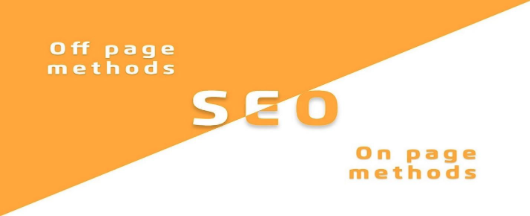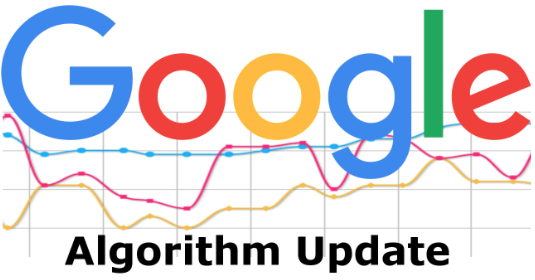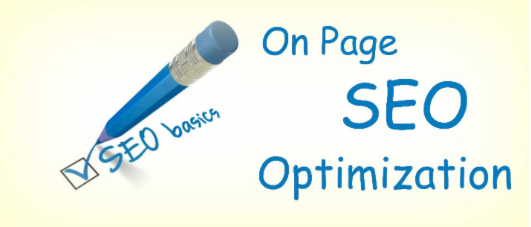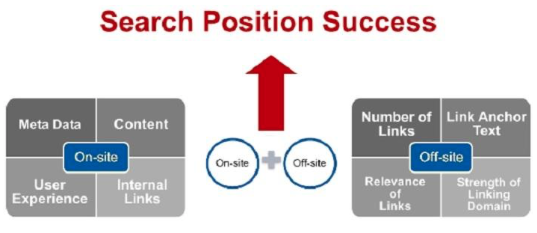
Both on-page SEO and off-page SEO are crucial to the success of an SEO campaign. While both are widely practiced by SEO experts, they are on completely different sides of the fence regarding SERP. For the most part, understanding how search engine algorithms work helps in determining which strategies are more favorable.
Both approaches of SEO stand to improve the visibility of a brand online. However, both have different metrics that indicate success. Off-page SEO is majorly concerned with building the authority of a website amidst the thousands of sites there are online. On the other hand, on-page SEO concerns everything about a website, ranging from content to website design.
If you are new to SEO, you may want to consider implementing both approaches. However, while at it, here is a look at why there is a lot of weight given to on-page SEO over off-page SEO:
Technical on-page SEO techniques help in building the authority of a website
Off-page SEO concerns increasing the authority of your domain through the backlinks you acquire. While you can solely invest in this, most SEO experts have found that in practicing on-page SEO, this need is still met. Some of the best practices of on-page SEO include internal linking, active audience engagement, quality content, and sharing audience-generated content, among others.
Such are practices that provide link building opportunities. Technically, the more links you have on your site, the higher your page ranks. In the course of executing those on-page SEO techniques, you will find that you have built a robust link structure that will boost your domain authority, without necessarily indulging on off-page SEO.
Other than that, the collective actions on your website affect the outcome of your brand and site. By this, it makes the process of earning backlinks a lot easier. For example, if you are working to ensure that you continually generate high-quality content, then you will attract several brand mentions and linking opportunities without having to approach sites to get it done.
On-page SEO validates off-page SEO
Some would say that both on-page and off-page SEO rely on each other, but that is not entirely true. A more accurate statement would be, without on-page SEO, off-page SEO would not matter. In essence, the activities of technical SEO are much more imperative that the entire process of earning backlinks to boost domain authority. Still, it is not to say that off-page SEO does not matter whatsoever.
Technical matters of a site like a website design, quality, and readability of content, the relevance of keywords, page speed, site responsiveness, among others, create a basis to which off-page SEO should happen. People do not care so much about how authoritative your site is if your website has nothing valuable to offer. Technically, it is safe to say that off-page SEO exists because on-page SEO is.
SEO is about the target audience first, and search engines second
Most website owners get it wrong with SEO when they channel all their efforts to ranking on search engines. While this is the underlying goal for every website, it should not be the priority when practicing SEO. Experts insist on investing in on-page SEO because it places value on the target audience more than on optimizing for search engines.
Off-page SEO champions earning many quality backlinks that will boost the visibility and authority of the site. On the other scope, on-page SEO insists on making the website a better place for the audience. Ideally, both work to boost the ranking position of a site. However, only on-page SEO would value the target audience before the SERP.
Since Google’s algorithm values the experience and satisfaction of the audience, a website owner will get better ranking results from on-page SEO that values users than off-page SEO. Some of the techniques that put the audience first include:
- High-quality content – readable, relatable, informative, timely and entertaining
- Proper website design – easy to navigate, proper contrast between backgrounds and fonts, orderly arrangement and organizations, especially the widgets and sidebars
- Page speed – at most 5 seconds for each web page
- Targeted keywords – relevant, descriptive, and capturing context and user’s intent
- Mobile optimization – mobile first indexing
Building domain authority hugely relies on on-page SEO
Much as off-page SEO is focused on earning quality links that will result in high domain authority, on-page SEO has a role to play. The ideal way to build a link authority is through creating a trusted link profile and a good base of content. Whether or not you are intentional with the processes, your site’s authority may suffer because of such reasons as:
- Untamed internal links – when the internal links have grown too much, and are spread out without deliberate keenness to their relevance in a text.
- 404-page errors – when the links on your site are broken, and there are page errors every which way. This happens when you link out to a missing site or a piece of article that has since been brought down. It can also occur with internal links.
- Poor site architecture – if your site’s structure does not reflect what your brand is about, then your authority will suffer a lot of damage
All these factors point the importance of on-page SEO in building authority. As you work hard on earning links, among other off-page SEO activities, remember that your domain authority can be affected by on-page SEO by an even higher percentage than off-page SEO. Therefore, you will find it wise to set the foundation first with on-page SEO, as would advise most SEO experts.
Most of Google’s ranking factors are about on-page SEO

Google is very concerned about the welfare of the audience. Most of the updates in its algorithm are based on trying to bring more satisfaction to the users. That said, SEO experts rely on Google’s updates to guide optimization efforts. Every year, you can expect a couple of updates that affect how the optimization should be.
The weight on technical on-page SEO matters because a lot of Google’s concerns caters for the content that is on a website. More people may visit your site because it has a high domain authority, but as long as the on-page SEO is wrong, your SERP position will always suffer. Some of the things that matter to Google and might cause you to attract some penalties include:
- Extremely “thin” content
- Keyword stuffing
- Blocked crawl paths and bad redirects
- Aggressive ad-to-content ratio
Should you decide to chase new links, the issues mentioned above will still mess up your ranking on Google’s SERP.
Social media cuts across both on-page and off-page techniques
For on-page optimization, social media is a necessary tool to champion audience engagement in content. It is also a relevant channel for communicating the different digital marketing messages and sharing the call-to-action for a brand.
In the same way, off-page optimization capitalizes on social signals for brand mentions and finding link-building opportunities. Ideally, if you were to capitalize on social media fully, in the process of doing on-page optimization, you would still indirectly cater for off-page SEO. Since one size never fits all, some businesses may have to set apart a bigger budget for social media in SEO than others do. As it is, social media is a powerful platform that stands to benefit both on-page and off-page SEO.
Off-page SEO comes in handy after a website has been around a certain period

Technically, when you first launch your site, you may not need the help of off-page SEO to get by. A lot of your efforts will be on making your website appealing for the target audience by improving the user experience. For example, no amount of high-quality links can make a website rank high without content to match it.
As you work on creating fresh, high-quality content, configuring your site’s structure, keyword research, among others, building links may not be the top of your concern. Once your website has been up and running for several months, then you feel the need to start leveraging on links to better your visibility. Whether you dedicate 100% of your effort and resources on off-page SEO, or whether it’s just 20%, the results will only be actionable when your site has been around long enough.
The perfect mix of on-page and off-page SEO only comes in when you have built your website with content worth people’s attention. Technically, you can rely on your organic traffic for the material you have. This can be the perfect starting point for soliciting authority backlinks to complement the excellent work you already have in place.

Generally, it is not about choosing between on and off-page SEO. It may look like all the weight is given to on-page SEO, but that does not make off-page SEO needless. Both work together to improve your SERP. If you can find a balance between working on your technical on-page SEO and building authority backlinks, then your ranking will be unstoppable. Consider learning a couple of things about keywords here https://keyword.com/. And while at it, tell us, what is your favorite SEO technique?



Both On page and off page SEO are required for ranking your site on Google Search. On Page SEO is more Interesting part for me